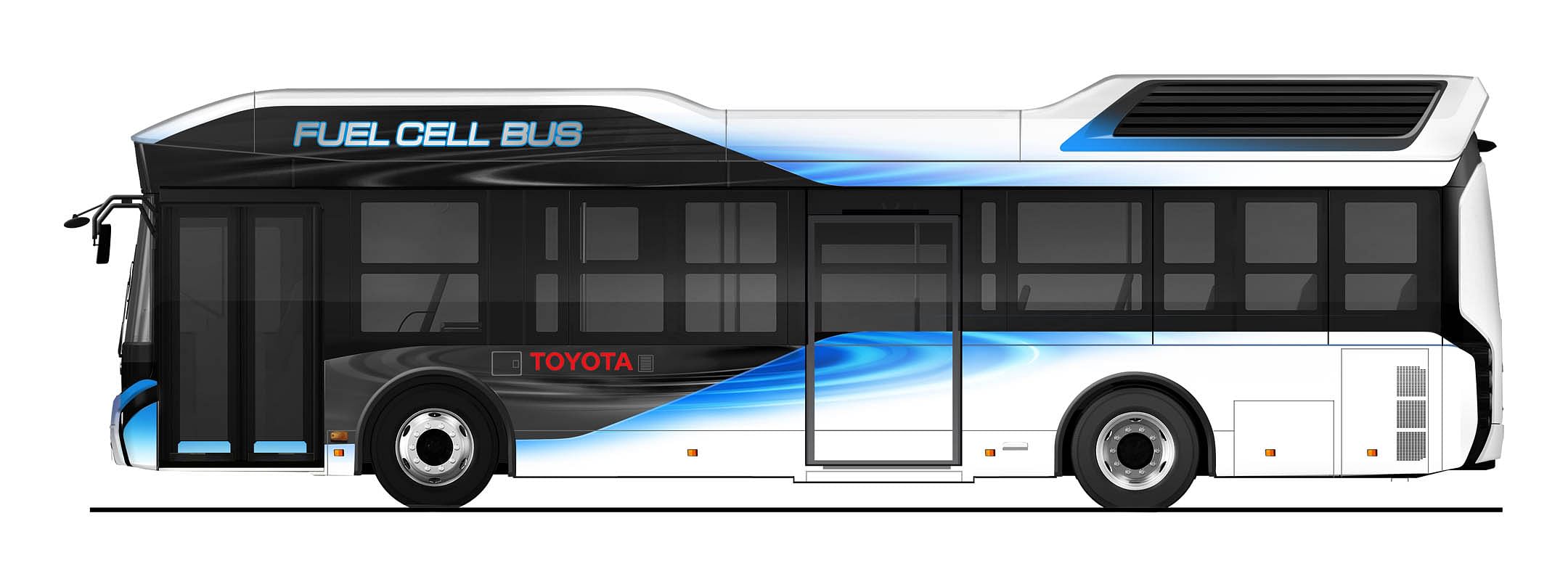Toyota to begin sale of fuel cell buses from early 2017
Toyota plans to introduce over 100 fuel cell buses mainly in the Tokyo area, ahead of the Tokyo 2020 Olympic and Paralympic Games.
Toyota Motor Corporation has announced that it will begin to sell fuel cell buses under the Toyota brand from early 2017.
Having already undergone repeated field tests for practical use, the Bureau of Transportation of the Tokyo Metropolitan Government plans to utilise two of these buses as fixed-route buses.
Toyota plans to introduce over 100 FC buses mainly in the Tokyo area, ahead of the Tokyo 2020 Olympic and Paralympic Games. In view of this, the FC buses will be sold for the first time in Japan in early 2017, so as to help increase the level of understanding by the general public of the utilisation of FC buses as a form of public transportation.
Moreover, in preparation for the Tokyo 2020 Olympic and Paralympic Games, the number of FC buses being introduced will increase steadily going forward. Together with this, Toyota says it aims to engage continuously in the diligent development targeted at the expansion of the introduction of the new FC buses from 2018 so as to contribute to the realisation of a hydrogen-based society.

The Toyota FC Bus was developed by Toyota, based on the company's experience in developing FC buses together with Hino Motors Ltd. The Toyota Fuel Cell System (TFCS), which was developed for the Mirai fuel cell vehicle (FCV), has been adopted to provide better energy efficiency in comparison with internal combustion engines, as well as to deliver superior environmental performance with no CO2 emissions or substances of concern (SOCs) when driving.
The bus also uses a high-capacity external power supply system. With a power supply capable of a 9 kW maximum output, and a large capacity of electricity supply at 235 kWh, the FC bus can be used as a power source in the event of disasters, such as at evacuation sites such as in school gymnasiums or, its electricity supply can also be harnessed for home electric appliance use.
RELATED ARTICLES
Hyundai unveils next−gen highly efficient hybrid system
The next-gen hybrid system is claimed to offer 45% better fuel efficiency and 19% more power compared with ICE powertrai...
Horse Powertrain reveals hybrid conversion for electric cars
Engine-making joint venture of Geely and the Renault Group announces new hybrid powertrain that fits into the same space...
Aisin to produce hybrid motor for Mitsubishi in Thailand
The hybrid drive motor and gearbox, will be produced at Aisin Powertrain (Thailand) Co for use in the Mitsubishi XForce ...






 By Autocar Professional Bureau
By Autocar Professional Bureau
 22 Oct 2016
22 Oct 2016
 4599 Views
4599 Views









